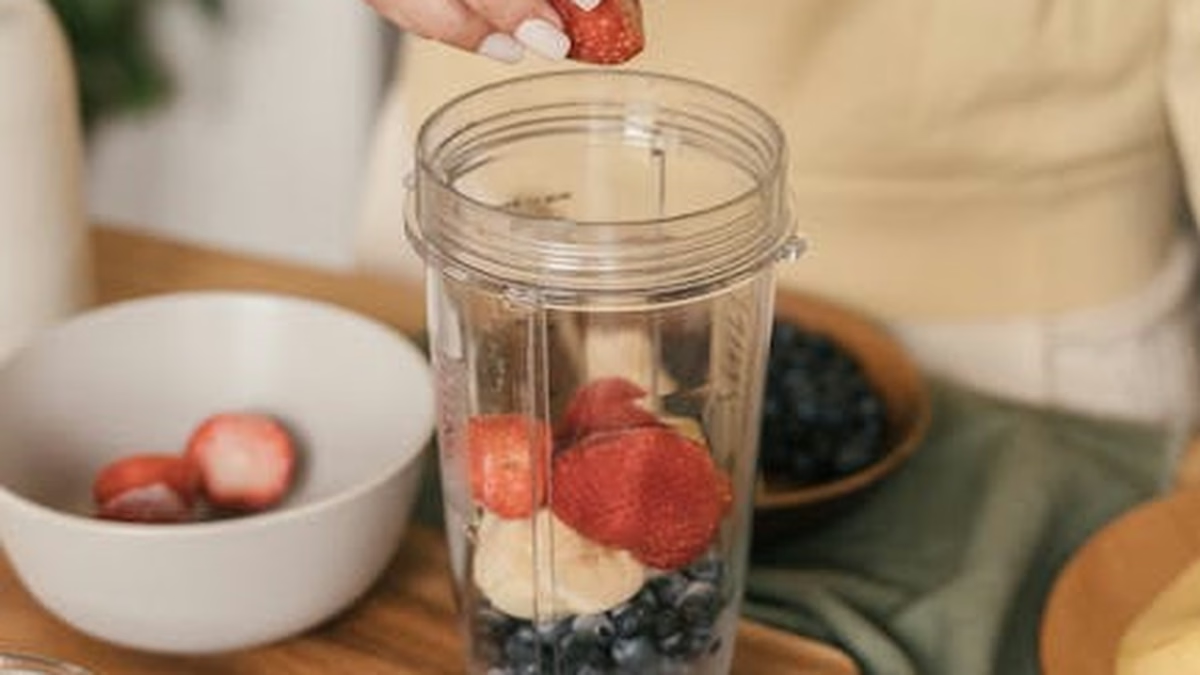Picture this: you’re craving something refreshing and healthy. A vibrant, colorful smoothie seems like the perfect solution. But a nagging question lingers: are smoothies really good for you, or are they just cleverly disguised sugar bombs? This is a question many of us grapple with as we navigate the complex world of health and wellness.
The Allure of the Smoothie: A Quick and Easy Meal
Smoothies have become incredibly popular, and for good reason. They offer a convenient and seemingly healthy way to pack a ton of nutrients into a single glass. They are easily customizable, making them appealing to picky eaters and those with specific dietary needs. Plus, they can be incredibly delicious! But the ease and convenience can sometimes mask some potential pitfalls.
The Good: Potential Health Benefits
When made with the right ingredients, smoothies can be nutritional powerhouses. They can provide a wealth of vitamins, minerals, antioxidants, and fiber. A well-crafted smoothie can contribute to:
- Increased fruit and vegetable intake: Many people struggle to meet their daily recommended servings of fruits and vegetables. Smoothies make it easy to incorporate a variety of produce into your diet.
- Improved digestion: The fiber in fruits and vegetables promotes healthy digestion and can help regulate blood sugar levels.
- Boosted immunity: Fruits and vegetables are rich in vitamins and antioxidants that support a strong immune system.
- Increased energy levels: Nutrients from whole foods provide sustained energy, unlike the quick crashes that can come from sugary snacks.
The Bad: Hidden Sugars and Calorie Overload
Here’s where things can get tricky. Many commercially prepared smoothies, and even some homemade ones, can be loaded with added sugars and unhealthy fats. This can negate many of the potential health benefits and contribute to weight gain and other health problems. Common culprits include:
Also Read: What Caffeine Is Really Doing to Your Hormones (Good & Bad)
- Fruit juice: While juice provides vitamins, it’s also high in sugar and lacks the fiber of whole fruit.
- Sweetened yogurt: Opt for plain yogurt and add your own natural sweeteners.
- Ice cream or sherbet: These add unnecessary calories and fat.
- Excessive amounts of fruit: Too much fruit can lead to a sugar overload, even if it’s natural sugar.
- Added sweeteners: Honey, maple syrup, agave, and other sweeteners can quickly increase the sugar content of your smoothie.
Building a Truly Healthy Smoothie: The Key Ingredients
The secret to a healthy smoothie lies in the ingredients you choose. Focus on whole, unprocessed foods and limit added sugars.
The Foundation: Greens and Liquids
Start with a base of leafy greens like spinach, kale, or romaine lettuce. You won’t even taste them, but they’ll add a significant boost of nutrients. For your liquid, choose water, unsweetened almond milk, unsweetened coconut milk, or even green tea.
The Flavor: Fruits and Vegetables
Add a variety of fruits and vegetables to create a delicious and nutritious smoothie. Berries are a great option, as they are low in sugar and high in antioxidants. Other good choices include bananas, mangoes, avocado (for healthy fats and creaminess), and cucumber.
The Boost: Protein and Healthy Fats
Adding protein and healthy fats will help keep you feeling full and satisfied. Good sources of protein include Greek yogurt, protein powder (whey, soy, or plant-based), chia seeds, and hemp seeds. Healthy fats can be found in avocado, nuts, seeds, and nut butter.
Examples of Healthy Smoothie Combinations
- Green Power Smoothie: Spinach, banana, almond milk, protein powder, chia seeds.
- Berry Blast Smoothie: Mixed berries, kale, water, Greek yogurt, flax seeds.
- Tropical Delight Smoothie: Mango, pineapple, coconut milk, spinach, hemp seeds.
Beyond the Blend: Mindful Consumption
Even with the perfect ingredients, it’s important to be mindful of portion sizes. Smoothies can be deceptively high in calories, so be sure to drink them in moderation. Also, remember that smoothies should be part of a balanced diet, not a replacement for whole foods.
The Verdict: Are Smoothies Healthy?
So, are smoothies actually healthy, or just fancy sugar drinks? The answer, as with many things in life, is it depends. A carefully crafted smoothie made with whole, unprocessed ingredients can be a fantastic way to boost your nutrient intake and support your overall health. However, a smoothie loaded with added sugars and unhealthy fats can be detrimental to your well-being. The key is to be mindful of your ingredients and portion sizes, and to enjoy smoothies as part of a balanced and healthy lifestyle.
Ultimately, your health is in your hands. Armed with this knowledge, you can transform your smoothie habit from a potential pitfall into a powerful tool for nourishing your body and feeling your best. Remember, every ingredient you choose is an opportunity to invest in your well-being. So go ahead, blend with intention, and savor the delicious journey to a healthier you!





